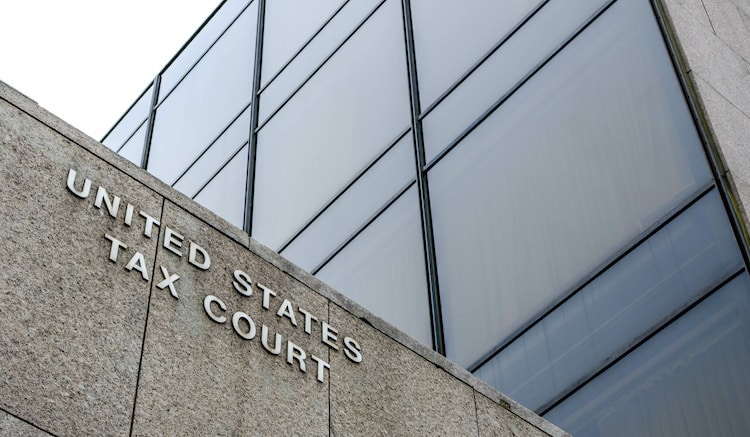
Farhy v. Commissioner
In a recent landmark ruling, Farhy v. Commissioner, the Tax Court has significantly changed penalty assessments under I.R.C. Section 6038(b) of the Internal Revenue Code. This ruling, rendered on April 3, 2023, carries significant implications for a broad range of taxpayers, potentially offering a basis to challenge or request refunds for penalties previously imposed and paid under Sections 6038 and 6038A-D.
Farhy v. Commissioner Background
The case concerned the owner of two Belize-based corporations who had neglected to file IRS Form 5471, which is required for U.S. Persons With Respect to Certain Foreign Corporations, for several years. According to I.R.C Section 6038(b)(1), an initial $10,000 penalty applies for each year a taxpayer fails to file the required form. I.R.C. Section 6038(b)(2) stipulates continuation penalties—capped at $50,000—if such failure persists following receipt of notice from the IRS. In the Farhy case, the IRS assessed the maximum penalties allowable under the statute and issued a levy notice to collect these amounts. When the commissioner upheld this collection action, Farhy appealed to the Tax Court.
Challenges to IRS Penalty Enforcement
A pivotal point in the Tax Court’s decision was the rejection of the government’s argument that
I.R.C. Section 6021(a) provides the IRS with the authority to assess and collect Section 6038(b) penalties. The Tax Court highlighted the extensive penalty provisions in the Internal Revenue Code which Congress explicitly authorized assessment. While the Court emphasized reluctance to disturb this well-established statutory framework by inferring the power to assess and collect I.R.C. Section 6038(b) penalties, it noted in this instance Congress did not expressly grant this power to the Secretary of the Treasury, as it did for other penalties in the Code.
The Tax Court also rejected the government’s argument that the term “assessable penalty” encompasses all penalties in the Code that are not subject to deficiency procedures. In the Court’s view, while I.R.C. Section 6038(b) provides for penalties, it does not offer ‘assessable penalties.’
Penalties as Taxes
The Tax Court also denied the second contention that I.R.C. Section 6038(b) penalties qualify as “taxes.” The court noted taxes and penalties are distinct categories unless a provision treats them as the same. The Court further reasoned if all penalties were included within the definition of “taxes,” the inclusion of the term “assessable penalties” in I.R.C. Section 6201(a) would be unnecessary. Therefore, the Tax Court declined to substitute the Commissioner’s judgment for Congress’ decision not to deem the I.R.C. Section 6038(b) penalties “taxes” for assessment and collection purposes.
In its determination, the Tax Court referred to I.R.C. Section 2461(a). This provision states when an Act of Congress prescribes a civil fine, penalty, or pecuniary forfeiture without specifying the mode of recovery or enforcement, it may be recovered in a civil action. Thus, according to the Tax Court, a civil action, not an IRS assessment, is the only appropriate mechanism for the government to enforce the penalty provisions of Section 6038(b).
The New IRS Penalty Landscape
This ruling is a paradigm shift for taxpayers, particularly those with penalties alleged by the IRS under I.R.C. Sections 6038, 6038A, 6038B, 6038C, or 6038D. It provides a fresh perspective on challenging the automatic imposition of these penalties, including those previously assessed and paid. Consequently, taxpayers should ensure that any resulting refund claims are filed within the appropriate statute of limitations.
What it Means for Taxpayers
The Farhy ruling underscores the importance of understanding the intricacies of the Internal Revenue Code and its implementation. It signals a shift in the traditional understanding of the IRS’s authority to assess and collect penalties, establishing a precedent which may impact future rulings and taxpayer strategies.
For Taxpayers who have been assessed penalties related to Form 5471, a refund may be available. For additional clarification as it may relate to your circumstances, please call RJS LAW at 619-595-1655 or find us on the web at RJS LAW for a free consultation. We do not consider this ruling to constitute a way to opt out of filing Form 5471 and remind all taxpayers of the importance to maintain preventive compliance by timely filing Form 5471 and all other forms required by the IRS.
This ruling serves as a reminder that the IRS’s power to assess penalties is not limitless and proper interpretation of the tax code is critical for compliance and in challenging IRS assessments.
In conclusion, taxpayers and tax practitioners alike need to consider this ruling and its potential implications carefully when navigating the complexities of the tax world.
Written by Andrea Cisneros Valdez, Esq., LL.M.

Leave a Reply